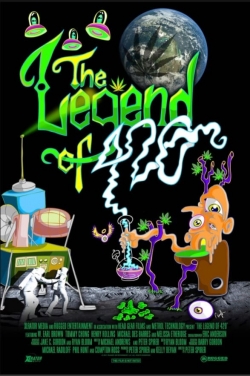

- #Were to realy watch the legend of tarzan online how to
- #Were to realy watch the legend of tarzan online movie
But in the world of the movie, the Tarzan of the popular imagination lives on in the minds of schoolchildren who ask, “Is it true your mom was a monkey?” and in the rhetoric of know-nothing politicians who insist on calling him Tarzan despite his noble name - just as we do.īut does the Tarzan of our imagination, or for that matter theirs, care about freeing slaves? I’d sooner expect him to found PETA. He’s learned English and walks upright, wears suits, drinks whiskey, and doesn’t climb things. When John Clayton returns to the Congo in The Legend of Tarzan, he does so as the man who has become worthy of his cultural and financial inheritance since leaving 10 years prior.

“It’s kind of a reversal of the novel or some of the other adaptations,” says the movie’s star, Skarsgard, “where you try to civilize the beast.” Fair enough. And it doesn’t realize it can’t have it both ways. It’s a liberal blockbuster about slavery.
#Were to realy watch the legend of tarzan online movie
What’s clearer is why it’s a bad one: The movie is so devoted to offering a clever course-correction of the Tarzan myth, while still staying true to that myth, that it overlooks its own impossibility.

But that may be neither here nor there - there may be plenty reasons The Legend of Tarzan is an unsuccessful movie. If its heavy costs ($180 million) and comparatively light ($46 million) opening-weekend returns are any indication, that logic is flawed. There’s a reason this movie isn’t Tarzan, but rather The Legend Of: It’s a movie about the legacy, released during the Fourth of July weekend because we, the public, were presumed to want to see a movie about that legacy.
#Were to realy watch the legend of tarzan online how to
You pick a reliable director like David Yates, who directed four Harry Potter movies and knows how to shoot the sweeping scenic tours of landscape any movie set in Africa obviously needs. You choose a lead like Alexander Skarsgard, a tall, muscular actor in the Johnny Weissmuller tradition whose impressively lean, long-limbed body will glisten next to furry CGI. You encourage Margot Robbie to play Jane Clayton like a 21st-century Grown Woman™, a proto-Beyoncé stan from the suburbs, so overtly contemporary in her downright sassiness you half expect her to call colonialism a Becky. Jackson as George Washington Williams, a real-life black activist, Civil War vet, and explorer whose own story nevertheless gets grafted onto a Tarzan myth. You make a movie about a man who, as Jane breathlessly reminds us, has power over the animals and conquers them “because his spirit came from them,” but who still has enough good sense to stave off other conquerors. How do you make a politely liberal blockbuster in 2016? You nudge and you wink - you give 19th-century material a veneer of 21st-century social understanding. That’s what makes The Legend of Tarzan such a curiosity: It’s an attempt to revive old material, with old-world values, for the 21st century - but with modern moviegoing’s love of violence and vengeance, rather than with levity or the cynical laser vision that’d see material for what it is. But we’ve taken to making fun of it, having apparently learned to embrace the beast. The jungle has long been condemned and praised as the bane of civility, a boon to the unbuttoned horndog and the lusty, uncivilized animal. That’s how the Congo works, at least according to Edgar Rice Burroughs’s 1912 book, Tarzan of the Apes, to say nothing of the history of history. Despite - or, more likely, because of - Tarzan’s overlong hair, dirty feet, and tendency to treat grunts and sniffs like language, this otherwise cautious young woman takes an interest. Granted, that’s nothing compared to their impromptu first date years earlier, when John, still a tree-climbing, gorilla-loving orphan known as Tarzan, sniffs between Jane’s legs like whichever animal does that on first dates (OK, humans). The mandrill’s excited bark - booty calls, animal kingdom style, a “ DTF?” delivered in every vertebrate pitch John can think of. He calls out like a wild animal and she, ever a professor’s daughter, studiously guesses which.

In The Legend of Tarzan, Jane Clayton (Margot Robbie) listens for the animal mating calls of her husband, John Clayton (Alexander Skarsgard), who stalks her through the moonlit rooms of their Hiltonesque Congo lodge like a predator.


 0 kommentar(er)
0 kommentar(er)
